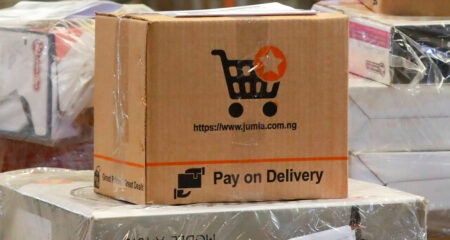
Jumia Technologies is facing fresh competition from start-ups in the African e-commerce and logistics market after the Covid-19 pandemic increased demand for online deliveries.
The US-listed firm is seen as one of the pioneers of Internet trading in sub-Saharan Africa, which trails the rest of the world due to challenges including weak Internet connections and unreliable addresses. But lockdowns to contain the coronavirus have attracted more entrepreneurs to the sector, according to Jumia co-CEO Sacha Poignonnec.
Greater competition is to be welcomed, given there are still so few people in the region that transact online, the Frenchman said in an interview. “I would rather grow the market than just try to take everything,” he added.
Jumia investors have experienced a roller-coaster ride since the stock debuted in New York last year. Persistent losses, allegations of corruption in the Nigerian sales force and a damning short-seller report contributed to an initial share price slump, but the arrival of the coronavirus has helped fuel a doubling in market value in 2020. That was tempered somewhat by a 30% stock decline this week after second quarter results.
MTN Group, Africa’s largest wireless carrier and an early investor is the company, said in June that it is evaluating its stake in the company. Jumia may offer MTN’s shares in the group as part of a potential new equity offer within the next three years if the Johannesburg-based firm decides to sell, Poignonnec said.
Led by Nigeria
Expanding into food has helped to increase sales and Jumia’s footprint in existing markets, which are led by Nigeria, according to the co-CEO. That’s involved adding grocery and pharmacy orders as well as restaurant takeaways, he said. Jumia’s logistics unit is also now open to third parties wishing to use the company’s network of drivers to deliver packages, adding another revenue stream.
The rapid growth of food delivery across emerging markets may make Jumia an acquisition target, EFG Hermes analyst, Nirgunan Tiruchelvam, said in a July note to clients. — Reported by Tope Alake, (c) 2020 Bloomberg LP



